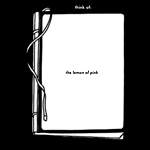 by: Sun-J
by: Sun-J
Fronted by Nick Zammuto and Paul de Jong, The Books have a manic but eclectic twist to their musical compositions. Their debut, 2002's Thought for Food, was an inconsistent, unorganized jungle of vocal samples and electronic progress, yet the Tomlab product was filled with individual songs propelled by simple structuring. What makes The Books so genius is their ability to place notes, chords and other tonal qualities sonically where they are never thought to occur naturally. Pictorially qualifying, if The Books were metaphorically creating movies, they would be able to place Julia Child in a Jenna Jameson movie without pigs flying. Quoted from their own website, their goal is not to "appropriate or take the possession of sound, but rather to re-contextualize within a musical continuum." Perhaps this is why all of their vocal samples are spliced and ordered in nonsense. Further, their strongest attribute is the multi-faceted use of Western and Eastern languages, and obscure sounds for that matter. Try to imagine every single gurgle of vernacular which made no sense to you, be it another language or something unexplainable. The Books' album can be described analogously as a combination of all those sounds amidst a backdrop of strings, keys and eclectic electronic instrumentation.
Unlike their debut, The Lemon of Pink is arranged far better. The album seems to have an indescribable flow about it. Opening with the title track and a flourish of banjo guitars, untimely string melodies, and bewildering vocal samples, the album transcends right into "Tokyo," a frantic finger picking number with a bellowing cello. "S is for Evrysing," is filled with foreign language clips, and vocal riffs which have been chopped and pitted accompanied by dark and mournful strings. "There is no There," is livid with vocal samples paying homage to Gandhi and an eccentric guitar. "Don't Even Sing About it," has a bluesy feel with languid, dreamy vocals which hint a breath of religious music. "A True Story of True Love," like love, is a roller coaster that begins tranquil and pensive before morphing into folk and then turning a corner to end on a Staccato note. Get it? Staccato...note. Right... Finally, "Take Time," is street percussion with intertwining guitar and twinkling violin melodies.
At some points, the record has a feel of a chamber orchestra filled with giddy, immature musicians. The Books' masterful ability to translate samples finds them splicing a string movement of flourishing Vivaldi into the Staccato triumph of Solfeggieto. Their meticulous editing and relentless incorporation of multilingual vocal samples is unmatched by any artist. As groundbreaking as The Books may seem, I feel they will have a hard time garnering major interest in the states. The way I see it, either they commit suicide, or move to England to gain the appreciation they deserve.
Share
|
|

